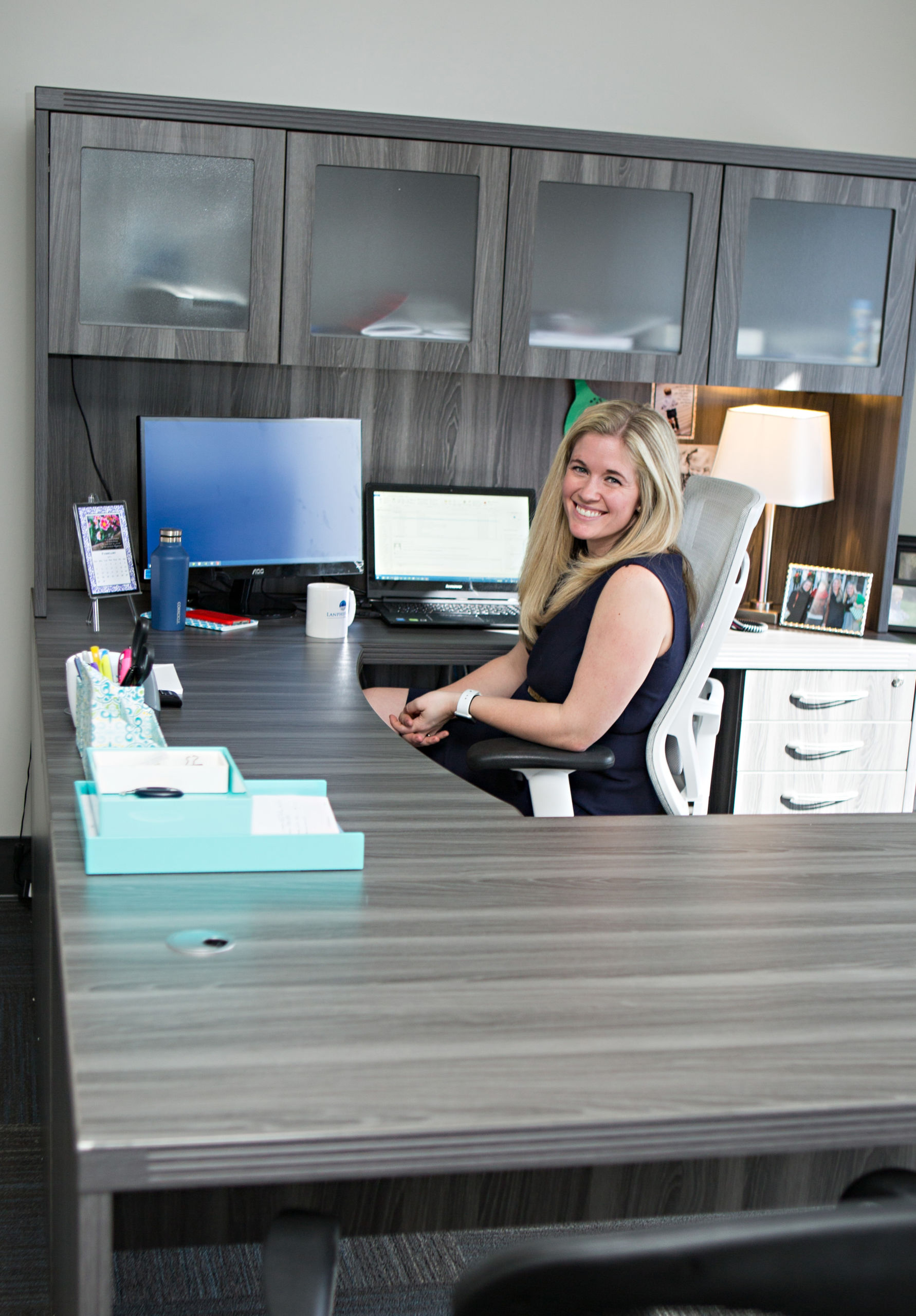In celebration of Women’s History Month, we are honored to launch “Spotlighting Women in Advisory Practice,” a blog series featuring four women who have transformed their accounting businesses with advisory services. These CPAs have moved beyond being solely tax providers, expanding their relationships with clients to become true business partners.
Following high school and an internship at a small business where her role included accounting work, Brittany Lanphier determined that she would definitely not study accounting in college.
After being accepted at Texas A&M University Mays Business School — ranked one the most competitive business schools in the region — she progressed through her introductory business classes and then her first accounting class. Something clicked then, Lanphier says, and she found that she liked accounting. Lanphier says she also knew an accounting degree would provide many job options.
Upon completion of the joint-degree BBA and MS program, Lanphier was recruited by Deloitte to work in their international tax group. This experience, while amazing — and was where, incidentally, she met her husband — left Lanphier feeling that the Big Four environment was not for her in the long term. After a few years, she and her husband Dennis left to start their own business.
Constantly chasing transaction-focused clients
Opening in downtown Denver in 2009, Lanphier LLP began with a few clients but steadily grew from word of mouth. Like most accounting firms, they were heavily transactions-focused with clients utilizing them mostly as bookkeepers and for doing their tax returns. (Dennis Lanphier, an attorney in addition to being an accountant, can handle complex tax situations.) In their business’s infancy, the firm took whatever business came through the door and began growing an average of 30 to 40% per year.
By 2015, the firm had three additional employees, which increased overhead expenses. Lanphier knew that the current model of just taking any business that came in the door was no longer working. The frustrations of having a purely transactions-based business were heavily felt, leaving both partners with the feeling of having to constantly chase the next thing in order to pay bills. This pace of work resulted in the partners having little time to be able to strategically invest in client relationships.
In 2016, Lanphier found her answer with the invitation to attend a Partner Summit where she learned “everything… we were doing wrong in our business” and was able to identify “our frustrations and challenges” with real-world examples from what others had experienced, she recalls.
Transforming to advisory services
When Lanphier first heard about advisory services, it sounded like a buzzword to her. But after attending the Partner Summit, she felt differently. Now, advisory services sounded like it would address some of the problems her firm was facing. She was concerned, however, that was going to require a lot of time to set up and implement — and time was not a resource her firm had in abundance.

To address this, Lanphier signed up the firm for an advisory-centric content and consulting solution in August 2016, and by the end of the year, all existing clients had been moved to maintenance agreements — a . More importantly, there was almost no pushback from clients. To Lanphier’s surprise, it turned out to be a lot easier to move clients to an advisory model.
Since adopting the new model, the firm has continued to . While the new technology and the advice from the Partner Summits helped Lanphier understand how to package the firm’s services, she now feels the firm had been heading in the direction of advisory services all along — they just needed the tools and roadmap to finally get there.
Having a model that has standardized and streamlined their processes has given the firm the resources to efficiently deliver the kind of advisory services needed, while creating an individualized experience for each client. In fact, after transitioning to an advisory practice, the has evolved, too. Now, Lanphier seeks a relatively small and owner-manager business with fewer than 100 employees that don’t have a CFO. Further, firm clients are local and national, and some even have an international presence, leveraging Lanphier’s background in international tax from Delo
y-related skills
In fact, Lanphier’s whole outlook on what skills and expertise were needed to succeed in an advisory practice has changed. Now, she says, it’s less about the technical tax knowledge and more about “creating a process and system to deliver basic knowledge to clients.”
“It’s really been about taking the more basic principles that impact everyone who’s in business, basically, and creating a process and a system by which we just deliver that consistently to them,” she adds.
Looking back on starting a tax business as a 25-year-old woman, Lanphier recalls that “Any instances of being talked down to — whether because I am a woman, young, or anything else — have by far been the exception rather than the rule in my experience.”
This is a testament that the market is ready for female business leaders who have the ability to fill the needs of clients, Lanphier says, adding that having a woman-owned business and being the mother of young children gives her the ability to build a culture within her business that supports a lifestyle inclusive of the work-family balance.
The Spotlighting Women in Advisory Practice blog series highlights more success stories like Lanphier’s. To learn more about the growing number of women in the tax and accounting profession shifting to advisory services, download our free white paper below, “How women can confidently and successfully build an advisory practice.”
Once you’re ready to take the first steps towards your firm’s advisory journey, build the firm of your dreams with Practice Forward.
 |
How women can confidently and successfully build an advisory practiceHear from Thomson Reuters experts who have spent time with female-owned and operated firms positioning themselves for long-term success with an advisory-centric business model. |